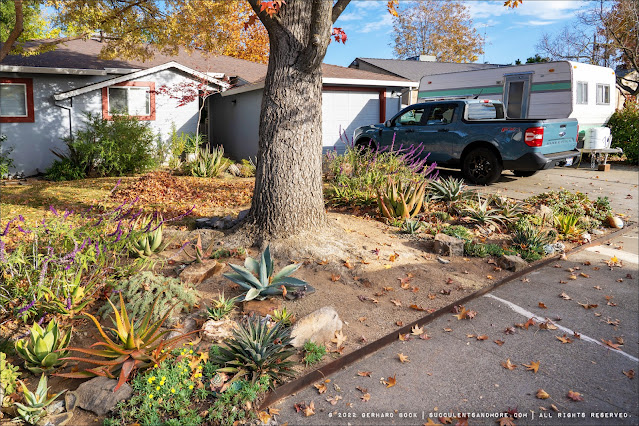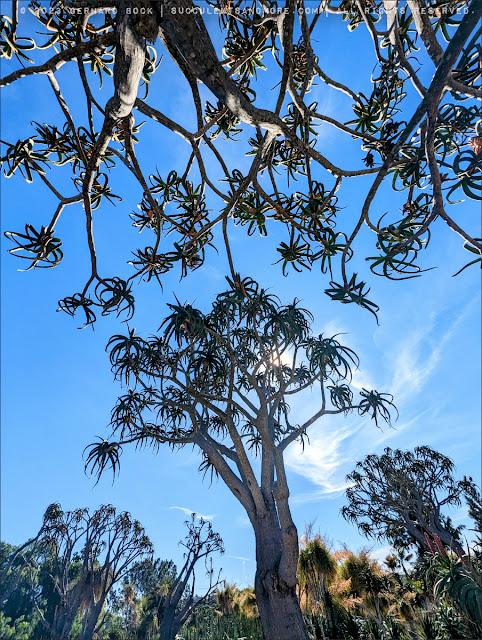More rocks, more plants: update on geologist Kyle's garden

I haven’t known my friend Kyle all that long, but I’ve already blogged twice about his garden in Sacramento: “ A geologist’s garden: succulents and rocks ” (July 2022) and “ Collecting rocks and succulents: Kyle’s garden in Sacramento ” (December 2022). Three months on, it’s time for another update. As you’ll see, Kyle hasn’t been sitting still. In fact, he’s gotten more done than most people would in a year. And what he’s accomplished is seriously inspiring. In late November 2022, his front yard looked like this: Kyle’s front yard on November 25, 2022 Now it looks like this: Kyle’s front yard on February 18, 2023 Kyle removed the existing plants and built up the area with extra soil and lava fines. He then added rocks sourced from the Gold Country , primarily slate, to add visual interest and to create pockets for smaller plants. The result is spectacular. Take a closer look at the vignettes below. Each one is a standout in its own way. Small cacti and others succulents that might oth...

